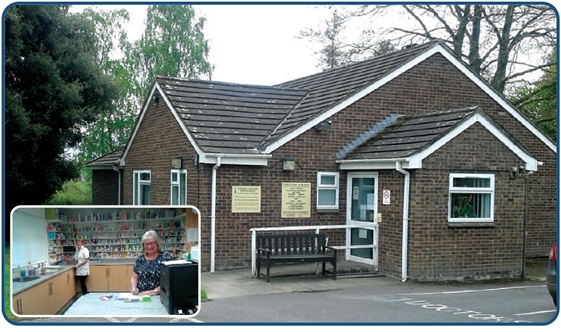T: 01822 851370 E: [email protected]
Case study: Dispensing excellence in action: The College Surgery Partnership, Devon

Case study: Dispensing excellence in action: The College Surgery Partnership, Devon
Describing the dispensing College Surgery Partnership in Devon as an outstanding rural practice, chief GP inspector Professor Steve Field, said: “This is one of the most innovative surgeries in the country. It is embedded in the local community with inspirational leadership.”
Ruth Rankine, a chief GP inspector for the region, added: “College Surgery’s highly responsive service is a real asset to the people living in this part of Devon. Staff demonstrate a sound understanding of the differing needs of their patients and act on these needs in the planning and delivery of its services.”
A family practice spanning a total of five branches located in rural south Devon, the College Surgery Partnership cares for a large number of patients. In total there are 16,800 patients living within a 120 square mile catchment area; with three of its branches designated as dispensing surgeries, 6,500 patients are also eligible to receive the GP dispensing service.

Patients have told the practice that they are very satisfied with the care they receive from the practice, and its dispensary patients especially so: patients have given the three dispensing branch surgeries the highest patient satisfaction scores of all.
With daily opening, extended hours available most days, and a same day service for
patients with urgent needs, the practice offers GP contact hours totalling
147.5 hours each week. With over 81 of these hours offered in the practice’s three village dispensing branches, it is little wonder, perhaps, that patients say they are particularly satisfied with the time they are given by a healthcare professional.
Working at the practice are 14 GPs, as well as five nurses, three health care assistants, two phlebotomists and additional reception and administration staff.
Patients using the practice also have access to community staff including community matron, district nurses, community psychiatric nurses, health visitors, physiotherapists, speech therapists, counsellors, podiatrists and midwives.
As well as providing the services patients would expect from any general practice, the practice is able to offer a range of health check and self-help services as well as arrange for complementary therapies
provided by independent practitioners and not funded by the NHS.
GP partners are committed to preventative medicine and healthy living, and to providing fully integrated care.
According to practice partner and dispensing lead GP Dr David Jenner, continuous investment in the practice staff and facilities has developed a practice that now has a firm focus “on keeping patients well instead of waiting until they sick”.
GP inspectors have seen for themselves the efforts made by the practice to support people who are vulnerable: there is a walking group; vegetable growing at the practice; and a ‘knit and natter’ social group held at the café on site. Inspectors felt this was crucial to developing well-being among patients, who were keen to tell the inspectors that they really enjoyed taking part.
Dr Jenner is in no doubt about the factors that allow the practice to put patients at the very centre of its operations. He says: “Like all rural practices we struggle to stretch rural NHS funding allocations across the length and breadth of our catchment area to meet all our patients’ needs. Dispensing income makes a vital contribution to our outstanding practice. We urge politicians to come and see for themselves just how crucial a difference this income makes to our services, our staff, and to our patients.”
References
- Rural England report: the state of rural services 2016 [online]
https://ruralengland.org/the-state-of-rural-services-2016-report/
- Public Accounts Committee. 44th Report - Reducing emergency admissions. Published 08 June 2018 [online] at: https://www.parliament.uk/business/committees/committees-a-z/commons-select/public-accounts-committee/publications/
- DDA Online article: Dispensing practices outperform the average, CQC ratings show [online] at: https://www.dispensingdoctor.org/news/dispensing-practices-trump-gps/
4. Jones AP, Bentham G, Harrison BD, Jarvis D, Badminton RM, Wareham NJ: Accessibility and health service utilization for asthma in Norfolk, England. J Public Health Med. 1998, 20: 312-317
5. Jones AP, Bentham G: Health service accessibility and deaths from asthma in 401 local authority districts in England and Wales, 1988–92. Thorax. 1997, 52: 218-222.
6. Campbell NC, Elliott AM, Sharp L, Ritchie LD, Cassidy J, Little J: Rural factors and survival from cancer: Analysis of Scottish cancer registrations. Br J Cancer. 2000, 82: 1863-1866. 10.1054/bjoc.1999.1079
7. DEFRA. Rural proofing: practical guidance to assess impacts of policies on rural areas [online] at: https://assets.publishing.service.gov.uk/government/uploads/system/uploads/attachment_data/file/600450/rural-proofing-guidance.pdf



